Description
Abstract
The aim of this study was to investigate Audience perception of federal government removal of fuel subsidy in Enugu metropolis. Three main research questions were formulated for the purpose of this study and other sub questions aimed at prying into audience perception, causes and effects of fuel subsidy removal in Nigeria. Survey research method was used because of its convenience, reliability and cheapness. The study population was Enugu Metropolis. A total of 200 respondents were selected, using the purposive random sampling. The number of retrieved questionnaire was 195, representing 97.5 response rate. Statistical analyses of data collected were performed using, frequency distribution, percentages, tables while Chi-square formula was used to test the formulated hypothesis. Results revealed that audience perceived the removal of oil subsidy as an act of selfishness, wickedness and the federal government means of promoting their selfish interest, thereby making the masses to suffer. Corruption in the oil sector and gross mismanagement and also due to few corrupt individuals that are united to promote their private interest among other factors have been found to be the reasons and causes for the removal of fuel subsidy. These in turn have led to increase in prices of fuel pump oil products; increase in prices of food commodities, transportation and increase in operating costs of micro and small enterprises. The researcher recommends that there was a significant relationship between fuel subsidy removal and cost standard of living of the general populace. She suggested that the federal government should look into other sectors of the economy such as agriculture, tourism etc. in other to boost the economy.
CHAPTER ONE
INTRODUCTION
1.1 Background of the Study
For some number of years, Nigeria enjoyed subsidy on petroleum products. This came to an end on January 1st, 2012, after a declaration from President Goodluck Jonathan that afterwards, the subsidy was to be removed Zaccheus, 2011. In Nigeria, the issue of appropriate pricing of petroleum product has always been a controversial policy issue. Successive governments have dealt with this problem to no avail. Suffix to say that in Nigeria, subsidy removal implemented by governments had always yielded negative effects on the citizens. According to Centre for Public Policy Alternatives 2012, a subsidy by definition is any measure that keeps the prices consumers pay for a good or product below market levels for consumers or for producers above market. The essence of having subsidy in place for products and services is that it has direct positive impact on poverty reduction in the lives of the poor masses who could not afford high prices Nwaoga and Casimir, 2013.
Subsidies were introduced in the Nigerian energy sector in the mid 1980s. Something of a creeping phenomenon, the value of the subsidies has gone from 1 billion in the 1980s to an expected 6 billion Dollars in 2011. In this period the specific products targeted for subsidy have changed. Diesel oil has had its associated subsidy redacted while petrol, gasoline; kerosene continues to enjoy a 54.4 subsidy over the international spot market price at the Nigerian pump. Economists believed that social welfare is maximized when the price of each good and service is freely determined by the interaction of buyers and sellers in open competitive markets. In practice and especially in developing countries however, policy is often driven more by political consideration than rational economic theory. The risk of social unrest, street riots, and threats of civil war very easily make introduction of market distorting policies justified. Nigeria as a case in point is under increased pressures to grow its economy. Yet countervailing forces of corruption, mismanagement of public resources and poor governance conspire to frustrate efforts to sustain growth in the face of rising population numbers and demands for a democratic dividend by the citizenry Centre for Public Policy Alternatives, 2012.
1.2 Statement of the Research Problem.
Fuel is central to the economic pursuits of Nigerians, whose sustenance daily bread is tied to this bye product of Nigeria’s rich crude oil deposits. The Petroleum Product Pricing Regulatory Agency PPPRA regulates the downstream Oil and Gas industry on behalf of the Federal Government and by the removal of subsidy on Premium Motor Spirit Petrol, the downstream subsector of the Petroleum industry is deregulated for Petrol. Deregulation leaves market forces as the sole determinant of product prices. While over the years, many Nigerians have opposed the implementation of the policy in the Oil and Gas Industry, international finance and donor agencies like the World Bank and IMF have been very harsh in their criticisms of the successive governments that have sustained the policy for a single inherent flaw they condemned as harmful to the growth of the Nigerian economy. However it should be noted that there were obvious flaws in the policy at inception and up to January 1, 2012 when it was removed there were more private retailers of petroleum products than the state owned NNPC stations. The regulatory framework PPPRA used to enforce the subsidy was weak, under resourced and suffered from the Nigerian disease. The secrecy and lack of transparency by the administrator of the subsidy the NNPC did not help matters either. Nigeria still could not make her refineries efficient. This means that Nigeria could not produce enough refined products for local consumption. Finally, due to the weak regulation by the PPPRA, some economic saboteurs/cabal were able to misappropriate the fuel subsidy money and channel it to their own personal pockets instead of using it for what it was intended for. These and more reasons triggered the federal government of Nigeria to remove the subsidy on fuel. By this removal of oil subsidy, the question this study seeks to answer is: What is the perception of the audience with regards to the removal of oil subsidy in January 2012
1.3 Objectives of the Study
The objectives of this study are:
1. To examine the audience perception of fuel subsidy removal
2. To examine the cause of the fuel subsidy removal
3. To ascertain the effects of fuel subsidy removal on the citizens of Nigeria.

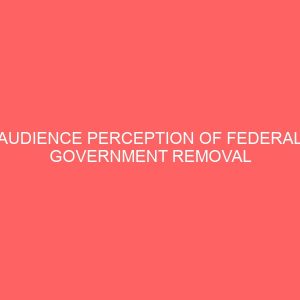
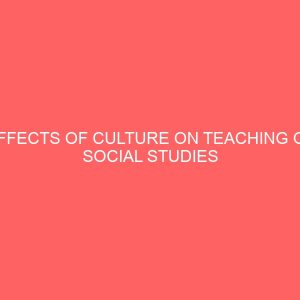
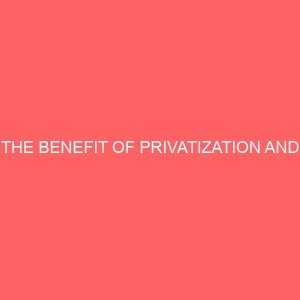

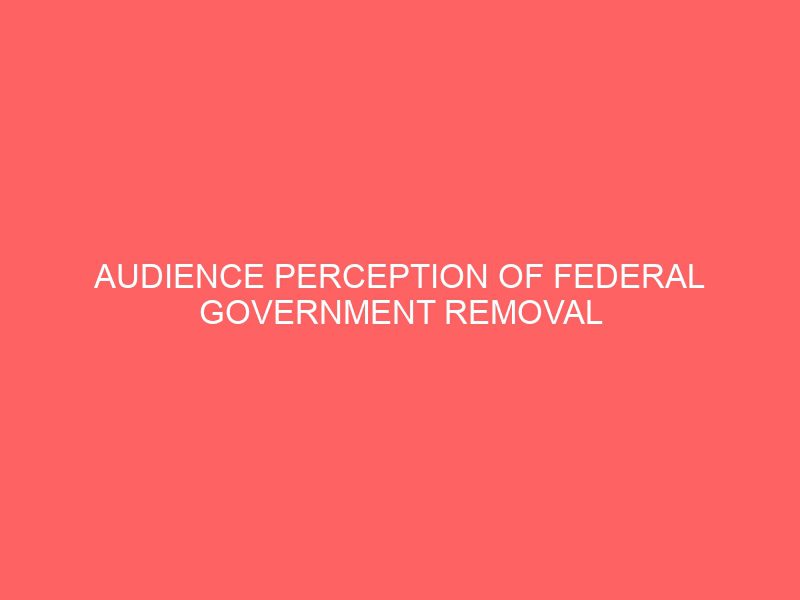
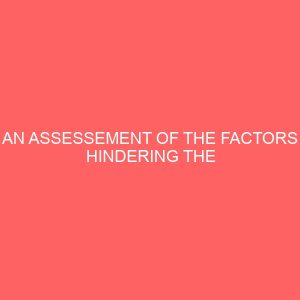

Reviews
There are no reviews yet.